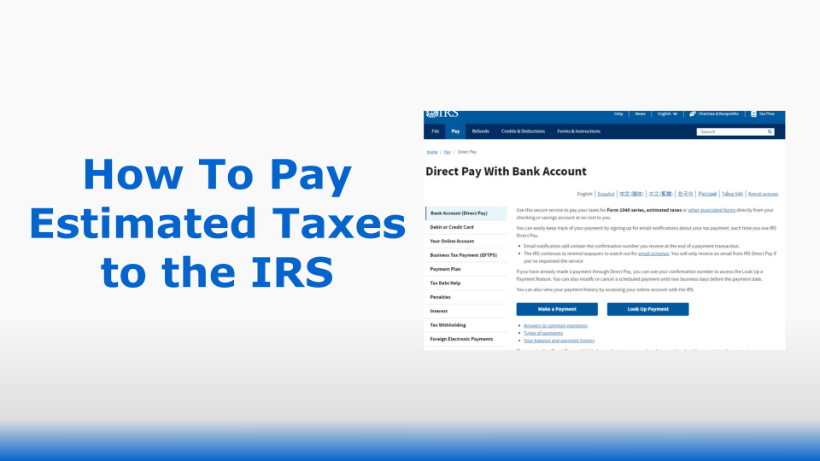What to do if you missed the tax day deadline
Published:
If you miss tax deadline, filing for an extension will buy you six months
Doing your taxes feels as fun as a trip to the emergency ward. So, you waited. And waited.
And here you are.
There are two main reasons people wait until the last minute to file taxes: either they owe the government money or something new and intimidating has happened to their finances.
If you find yourself trying to figure out how to navigate April 15, here are a few tips.
Absolutely, positively, without question, and especially if you owe money, file your tax return on time. If you owe money, you’re not going to escape the payment if you wait to file until after April 15. You’ll just make it worse. It is manifestly better to file your tax return on time, even if you owe money.
Especially if you owe money.
If you owe money and don’t pay, the IRS will charge interest, which is about 3.22 percent right now, compounded daily.
“You’ll generally have to pay a late payment penalty of one-half of one percent of the tax owed for each month, or part of a month, that the tax remains unpaid from the due date, until the tax is paid in full or the 25 percent maximum penalty is reached,” according to the IRS website. “The one-half of one percent rate increases to one percent if the tax remains unpaid 10 days after the IRS issues a notice of intent to levy. For individuals who file by the return due date, the one-half of one percent rate decreases to one-quarter of one percent for any month in which an installment agreement is in effect.”
Compare that to what happens if you just don’t bother to file until you’ve got the money.
“If you owe tax and don’t file on time, the total failure to file penalty is usually five percent of the tax owed for each month (emphasis mine) or part of a month that your return is late, up to five months,” the IRS says. “If your return is over 60 days late, the minimum penalty for late filing is the lesser of $135 or 100 percent of the tax owed.”
This is on top of the interest penalty. So filing and not paying costs you half a percent of your total bill every month. Not filing and not paying costs you 10 times as much.
Papers, please.
You’ve still got time to gather forms and documentation. The big three pieces of paper most people need will generally be a W-2 (the form from your employer showing your wages and taxes paid), a 1098 (the interest statement on your home mortgage if you own a house), and a 1098-E (the interest statement on your student loans). If you have not received your Form W-2 by the due date, you may use Form 4852, Substitute for Form W-2, Wage and Tax Statement. Most large lenders will have the means to download a 1098 from their website. A 1098-E can be downloaded from the U.S. Department of Education here and from Sallie Mae.
Many people will also want documentation describing their charitable donations, their medical expenses (if more than 7 percent of your income), and a 1099-misc from payments collected as a non-employee. You should have received a 1099 for every stock account, bank account or certificate of deposit that paid you more than $10 in interest last year.
If you can max out your savings accounts, now’s the time. The deadline for funding an IRA for 2012 tax purposes is April 15. If you haven’t hit the contribution limit for the tax year of $5,000 ($6,000 if you’re age 50 or older), and you’re looking for a last-minute way to reduce taxable income, consider maxing out your retirement savings. April 15 is also the deadline for maxing out health saving accounts, with a maximum deductible contribution limit of $3,100 for individuals and $6,250 per family. If you don’t have an IRA or an HSA, this is probably a good time to establish one. Notably, an HSA has to be linked to a
high-deductible health insurance plan that’s approved for the purpose.
If you give a lot of money to charity, be ready to defend it.
You’ve missed the window to make charitable donations that apply for 2012 taxes. Still, your charitable donations can be a flag for an IRS audit, particularly if you give a whole lot more than most people in your tax bracket. There are rare creatures like highly religious congregants who tithe 10 or 20 percent of their incomes to charity regardless of income, but most people earning less than $100,000 give away less than 5 percent. If you’ve made a huge donation — this would be one of these “new and intimidating” financial circumstances — you better be able to back it up.
Call a time out.
If you really can’t get it all together, you can ask for more time. Everyone gets a six-month extension with no questions asked. Well, almost no questions: they’ll ask one. Do you think you owe money?
If you do, you’re required to estimate the amount. You’re expected to pay what you owe on April 15, even if you’re not sure that’s the right number. The benefit here is that if you owe money, this pushes back the collection process — the levy notices, the potential garnishment, the liens on property — for six months. If you’re wrong and you don’t owe money, the IRS will give it back. If you owe more, you’ll pay a late-payment penalty. But the benefit here is that if you owe money, this pushes back the collection process — the levy notices, the potential garnishment, the liens on property — for six months.



